By Nada Hamouda
Getting rid of colonization and setting a national strong army were the very main reasons behind the Egyptian 1952 Revolution, which is also known as the 23rd of July Revolution. However, on the 66th anniversary of the revolution, which ousted King Farouk, let’s take a look back at some snapshots that capture one of the most important periods of modern Egyptian history.
26th of January 1952
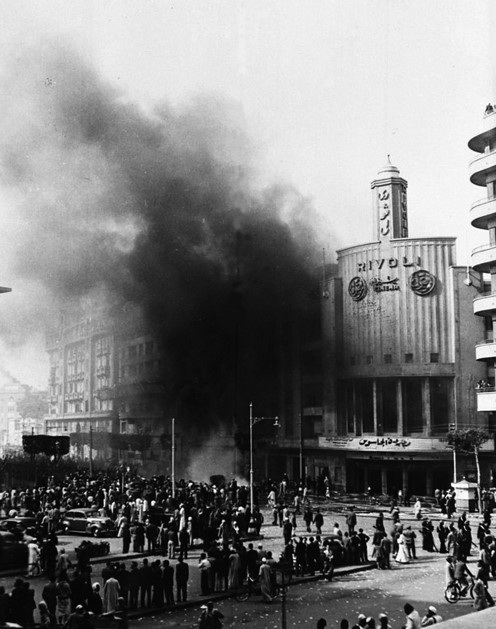
Almost 24 hours after the soldiers of the British occupation killed 50 Egyptian policemen in Ismaliya, a serious wave of agitation took over the capital leading to the “Cairo Fire”.
22nd of July 1952
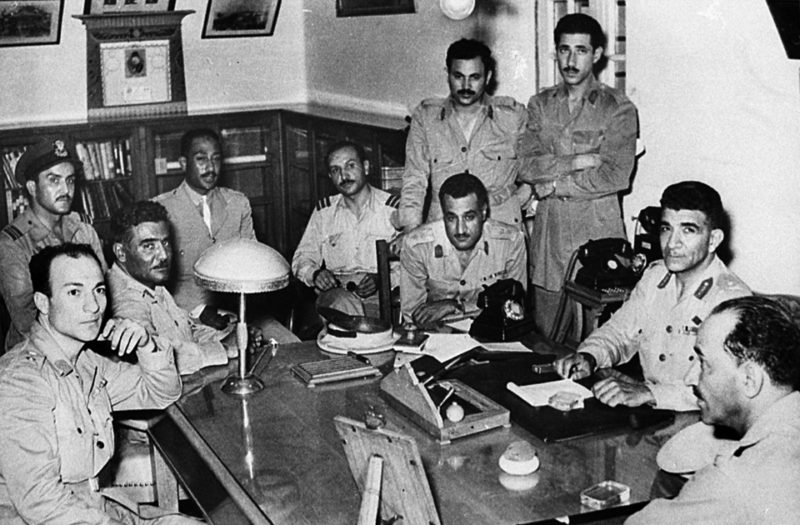
Calling themselves the “Free Officers”, a group that consisted of army officers secretly met up to put a plan to abolish the monarchy allied to the British Empire and to end the Muhammad Ali dynasty.
26th of July 1952
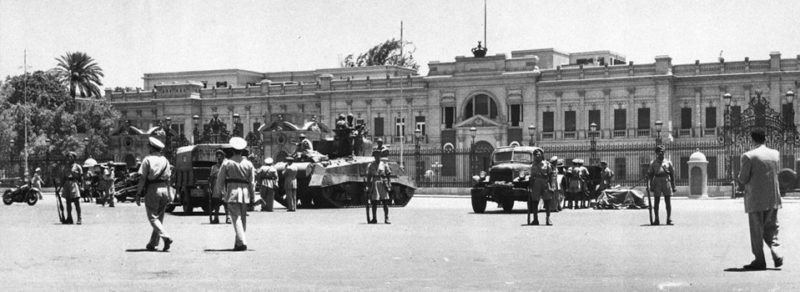
Egyptian army tanks were drawn up in front of the royal Abdin Palace, in Cairo, waiting for King Farouk to leave the throne.
23rd of July 1952
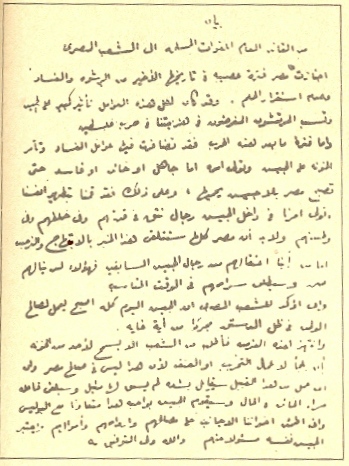
With his very good Arabic and remarkable voice, a Senior Member of Egypt’s Free Officers, Anwer El Sadat, was assigned to announce the news of the revolution to the Egyptian people over the radio networks.
26th of July 1952
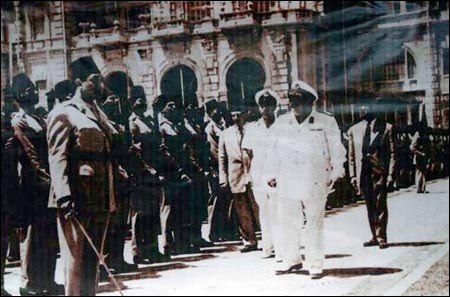
This is probably one of the most famous photos in Egypt’s history. As on July 26th, King Farouk left the palace in favor of his seven-month-old son, Prince Ahmed Fuad. Then he left the country for Italy on his royal yacht.
18th of June 1953
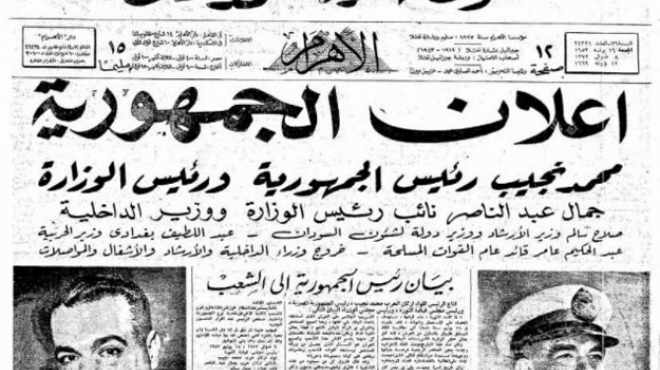
Officially, the 18th of June marked the declaration of the Republic with Mohamed Naguib becoming the first President of Egypt.
28th of March 1954
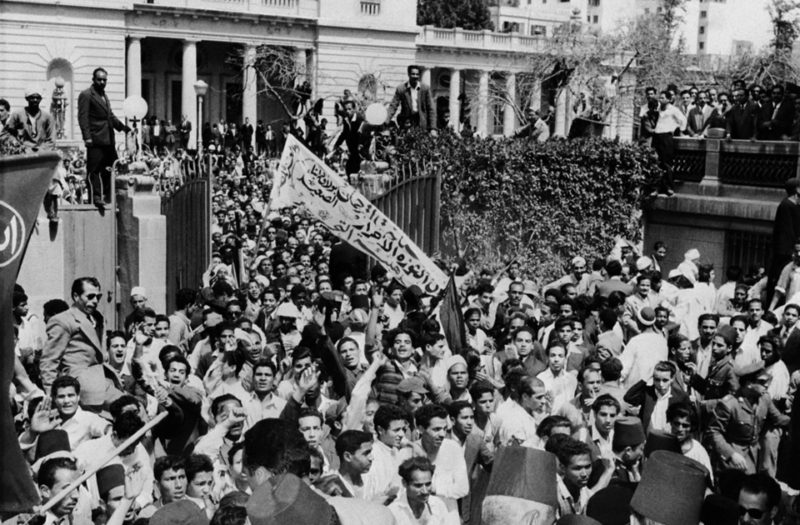
A large crowd storms into the Ministry Council Headquarters supporting the revolutionary regime.
14th of November 1954
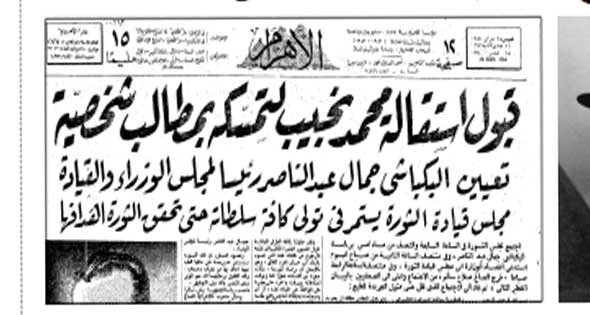
Nasser accused Naguib of supporting the outlawed Muslim Brotherhood and of harboring dictatorial ambitions. Consequently, Naguib left the presidency and got arrested by the Armed Forces.
23rd of June 1956
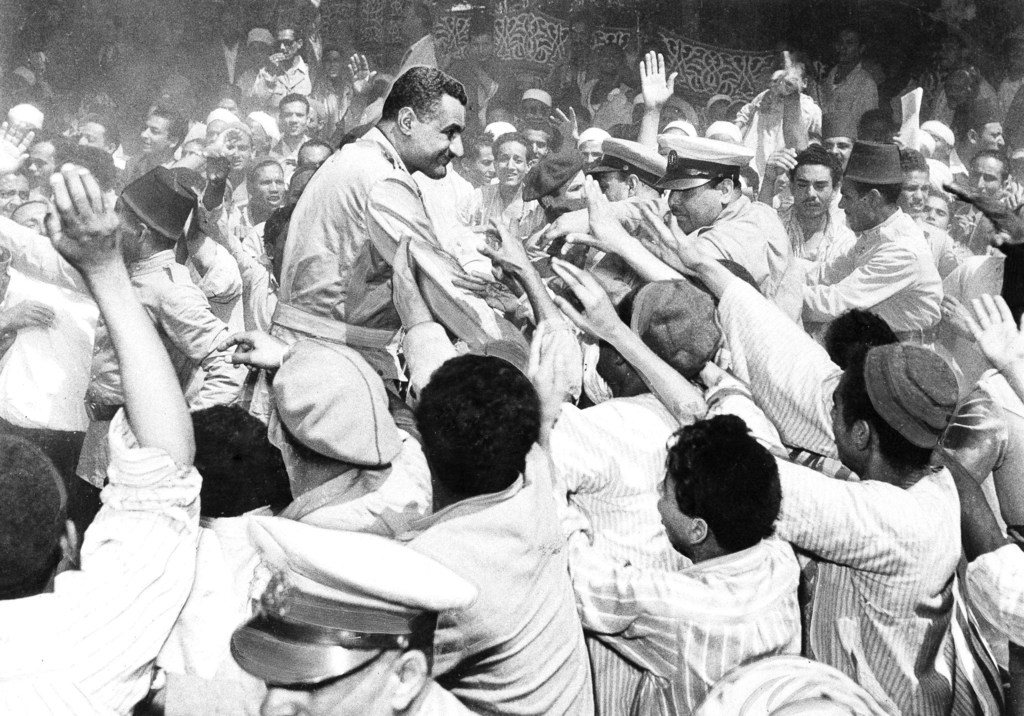
Finally, Nasser who is well-known for his Arab nationalist and anti-colonial foreign policy became Egypt’s president from 1956 until his death in 1970. He left a legacy that we can safely claim that his reign changed the history of Egypt in too many ways.


